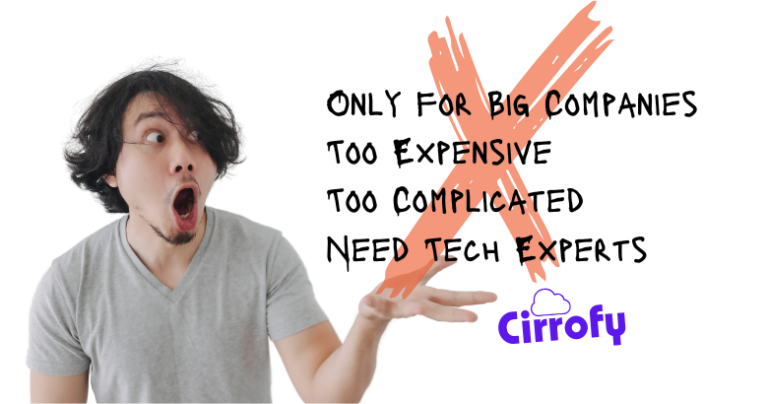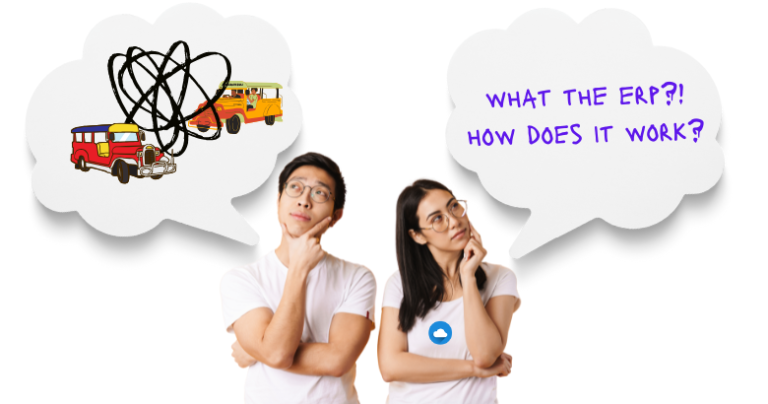ERP vs Standalone Software: Which Is Better for Your Business?
Picture this: Your business is thriving, but managing operations is starting to feel like juggling chainsaws. Inventory is tracked in one tool, invoices in another, and your sales team uses their own spreadsheets. Chaos creeps in. Deadlines are missed. Opportunities slip away.
Now, the big question: Should you stick with standalone software for each task or switch to an all-in-one ERP system? The right choice could be a game-changer for your business.
Let’s dive into the ERP vs. standalone software debate to figure out which solution makes the most sense for your needs.
What’s the Difference Between ERP and Standalone Software?
Before we compare, let’s define these two options:
- Standalone Software: These are specialized tools designed to handle specific tasks. For example, accounting software for finances or CRM software for managing customers.
- ERP (Enterprise Resource Planning): An all-in-one system that integrates multiple business processes like accounting, inventory, HR, and sales into a single platform.
At first glance, standalone tools might seem simpler and cheaper. But as your business grows, their limitations can become frustratingly clear.
When Standalone Software Makes Sense
Standalone software is great when you’re starting small or focusing on a single, well-defined task.
Why Choose Standalone Software?
- Simplicity: These tools are easy to use because they’re designed for one specific purpose.
- Affordability: You only pay for what you need, which is great for small budgets.
- Quick Setup: Since they focus on a single function, deployment and training are usually faster.
Where Standalone Tools Fall Short
Standalone tools shine when your operations are basic, but as you scale, they start to crack:
- Lack of Integration: You end up manually transferring data between tools. This eats time and increases the chance of errors.
- Siloed Data: Teams work in isolation, with no clear picture of overall performance.
- Scalability Issues: Adding more standalone tools for new processes can get messy and expensive.
Why Businesses Choose ERP Systems
If standalone software feels like a patchwork quilt, ERP systems are like a finely tailored suit. Everything fits together perfectly.
Benefits of ERP
- Unified Platform
With ERP, all your business functions (like accounting, inventory, and HR) are connected. No more switching between apps or playing detective to track data. - Real-Time Insights
ERP gives you a bird’s-eye view of your business. Want to know how much inventory you have, how sales are performing, or your cash flow status? ERP systems provide instant answers. - Automation for Efficiency
Say goodbye to repetitive manual tasks. ERP automates workflows, saving time and reducing errors. - Scalability
Unlike standalone tools, ERP grows with your business. Add new features and users as needed without worrying about system limitations. - Cost-Effectiveness in the Long Run
While ERP might seem expensive upfront, it eliminates the need for multiple subscriptions and minimizes inefficiencies. Over time, it’s a smarter investment.
ERP vs Standalone Software: Which Is Better for Your Business?
The answer depends on your business needs, size, and growth goals. Let’s break it down:
1. Integration vs. Specialization
- ERP: Perfect for businesses that need a single source of truth across all operations. It ensures seamless communication between departments.
- Standalone Software: Better for companies focusing on specific tasks. For example, if you only need a tool for email marketing, a standalone solution works well.
2. Business Size and Complexity
- ERP: Ideal for growing businesses or those with complex operations. If you’re managing multiple locations, products, or teams, ERP simplifies the chaos.
- Standalone Software: Great for small businesses or startups that don’t need all-in-one solutions yet.
3. Cost Considerations
- ERP: Higher upfront cost but saves money over time by reducing inefficiencies and consolidating systems.
- Standalone Software: Lower initial investment but can become expensive as you add more tools or handle inefficiencies manually.
4. Data Management
- ERP: Offers real-time, centralized data for better decision-making.
- Standalone Software: Creates data silos, requiring manual integration for a full business view.
When to Upgrade from Standalone Software to ERP
Many businesses start with standalone tools, but here’s when you know it’s time to upgrade:
- You’re Drowning in Spreadsheets: If reconciling data across tools feels like solving a puzzle every month, you’re ready for ERP.
- Growth is Outpacing Systems: Expanding teams, locations, or services? An ERP ensures your systems grow with you.
- You Need Better Reporting: If making sense of your data is a struggle, ERP can give you clear, actionable insights.
- You’re Spending Too Much on Software: Managing multiple standalone subscriptions and integrations adds up. ERP consolidates those costs.
Case Study: The Tale of Two Businesses
Let’s say there are two companies:
- Company A uses standalone software for accounting, inventory, and customer management.
- Company B adopted an ERP solution.
As Company A grows, they face challenges:
- Manual data entry slows them down.
- Disconnected systems cause errors.
- They’re spending more time managing tools than running their business.
Meanwhile, Company B has an edge:
- Automated workflows free up time.
- They have instant visibility into performance metrics.
- Teams collaborate better because everything is integrated.
The result? Company B scales faster and runs smoother because they chose ERP over standalone software.
Final Thoughts: Choosing What’s Right for You
When it comes to ERP vs standalone software, there’s no one-size-fits-all answer.
If your business is small, budget-conscious, and focused on specific tasks, standalone software might work for now. But if you’re looking for long-term growth, efficiency, and scalability, ERP is the way forward.
Think of ERP as an investment in your business’s future. It eliminates inefficiencies, provides real-time insights, and sets the foundation for sustainable growth. So, whether you’re just starting out or ready to scale, take a step back and evaluate: What does your business truly need to thrive?
Choose wisely, and watch your business soar.

